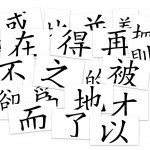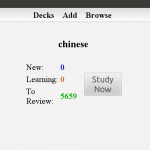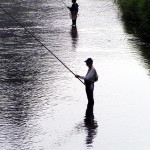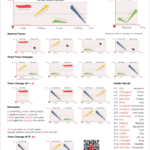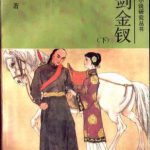Articles in the ‘Learning outside class’ category Page 17
-
Sensible Chinese character learning revisited
In a way, learning Chinese characters is very much like learning vocabulary in any foreign language and much of the efficient methods developed there works well for Chinese as well. However, characters are also fundamentally different from words in English and this influences how we should learn them as well. This article is a recap of how to learn Chinese characters in a sensible way. It is also a prologue for the upcoming character learning challenge.
Read → -
Asking the experts: How to learn Chinese grammar
How should we learn Chinese grammar? This article collects the best answers from more than 15 experts and experienced learners.
Read → -
Flashcard overflow: About card models and review directions
The question of how to design flashcards is faced by all learners who use them. What should you put on the front? What should you put on the back? Should you add single characters or whole words? Or perhaps sentences are better? The general answer is that it depends and this article discusses some of the factors the answers depend on.
Read → -
Learning how to fish: Or, why it’s essential to know how to learn
Learning how to learn Chinese is an essential skill for any student, regardless if you study on your own or in a course. This article explains why going to class is not enough.
Read → -
Habit hacking for language learners
Forming language learning habits is a key ingredient in any successful recipe for mastering Chinese. This makes sure that we learn regularly and that it becomes a natural part of our lives, rather than something we do artificially only occasionally and perhaps a little bit reluctantly. This article deals with the basics of how to form habits and how they can be used to boost your language learning.
Read → -
Focusing on tone pairs to improve your Mandarin pronunciation
When learning to pronounce tones in Chinese, it makes sense to focus on words rather than single syllables. Most words in Mandarin are disyllabic and since practising these will also include tone changes (sandhi), focusing on tone pairs is recommended. This article gives you all HSK and TOCFL words, sorted by tone! First all [first tone] + [first tone], then all [first tone] + [second tone] and so on. This is great for students who need words to practise difficult combinations, but it’s also useful for teachers.
Read → -
Easing yourself into reading novels in Chinese
Reading a novel in Chinese is the goal for many learners, but perhaps it’s easier to accomplish than you think. This article discusses various methods of making novel reading easier in Chinese, mainly focusing on the benefits of re-reading books you are already familiar with and know you like because you’ve read them before in your native language.
Read → -
A language learner’s guide to wuxia novels
Wuxia can be used as a key to both Chinese language and culture. This article is meant to be a guide to second language learners. If you want to read wuxia in Chinese, where do you start? How do you approach these novels? How do I find one which isn’t too hard? You will find the answers here!
Read → -
Wuxia, a key to Chinese language and culture
Wuxia is something genuinely Chinese and is great for learning both about the culture and the language. in this article, Sara K. introduces wuxia to Chinese learners and explains what it is, why it’s relevant for learners and how to get started with wuxia if you find it interesting.
Read → -
25 books I’ve read in Chinese, with reviews and difficulty ratings
I set the goal of reading 25 books in one year. This article is about the 25 books I read and is meant to serve as encouragement and inspiration. You might also find a book or two you want to read yourself! At the end of the article, I discuss my reading habits in general as well.
Read →
